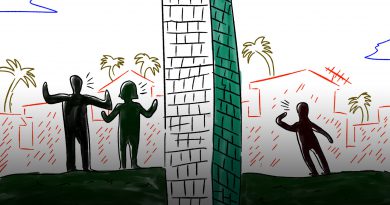Can We Just Talk About It?
With the upcoming elections, we have all seen how unwilling politicians are to cross the aisle and work together for the sake of the people. It is frustrating to witness our country’s leaders so against one another that they do not even display actions of common courtesy.
However, upon closer inspection, their behavior simply mirrors how people have been acting for the past decade: unwilling to listen. Having grown up in the last decade, where mediums of communication have increased greatly, it is shocking to see how we have lost this core action of speaking to each other.
This is mostly seen when discussing politics with others. Everyone has their beliefs and values and they also usually don’t seem to shy away from expressing them. Still, when the switch is flipped, people have difficulty understanding or empathising with those that have opposite beliefs. Some even become frustrated and the conversation turns into an argument.
I would like to explore where this stems from, whether it stems from the classroom, technological advancements, or something else.
Focusing on public school and looking at how class time is divided, there is an emphasis on learning the material and understanding it. Rarely, though, is there a time to discuss it and gather different opinions from students.
While it is difficult to see how this can affect someone negatively in the moment, these situations may hinder students from being effective communicators in the future and being capable of carrying a conversation with someone who has opposing views.
One needs to develop these communication skills, such as patience, empathy, and respect, in order to effectively have these difficult conversations. While some may argue that these conversations should be had within the family, children typically inherit their beliefs from their parents. Therefore, it would be difficult to have a conversation with different perspectives within a family.
Perhaps another reason for people not communicating effectively is that they are not used to receiving responses to their comments. With the start and rise of social media in the past decade, there is a whole new generation that expresses their beliefs on various platforms such as Facebook, Twitter, and Instagram. This is problematic because when having a conversation about beliefs, or even just posting about them, it is difficult to communicate effectively since one is not physically with the other person.
Instead, only the ability to agree and disagree with the post exists. When adding this to the lack of communication skills that people have, it is not hard to see why conversations on social media typically become heated arguments.
What can be done about this, though? Perhaps we could start by implementing time in classrooms to discuss the material in greater depth among students. This would allow students to develop skills in listening and understanding at an early age.
Ultimately, this can only start if we begin to have conversations about how to effectively have a conversation. Otherwise, we will continue to become less able to listen and fall deeper down the spiral of polarization.



